Now that you have an idea Where and Why to start, let’s look into the main building blocks I took and adapted from Bullet Journaling (BuJo) for my guided-freestyle approach.
This will help you to get a better understanding of how things work together to your favour of getting more organised and to leverage the power of reflection.
This piece covers:
- Daily logging (or “rapid logging” in Bullet Journaling terms)
- Monthly and weekly log (the latter is not standard BuJo)
- Updating your log
- Leveraging the friction of writing longhand
Besides the index page and page numbers, plan to write a daily log.
Daily log as the central piece
The daily log is just as much as writing the current date on a page. Then you will jot down stuff related to that one day below.
One “thing” is one line.
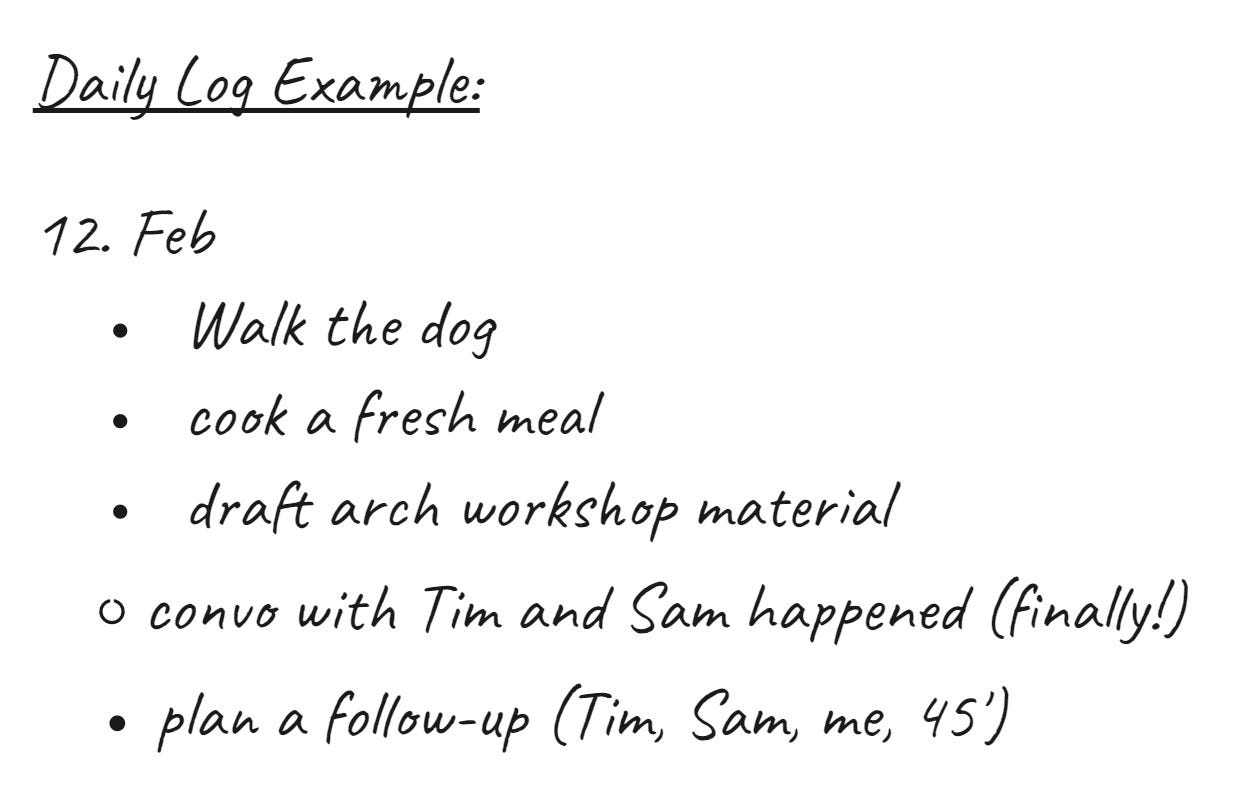
Tasks get a bullet point prefix. You can also log things that happened or observations and prefix them with a small empty circle.

Again one line holds only one thought.
Rapid logging in action
Once “a thing” is done, you cross its text and mark the bullet dot with an x. Don’t forget to celebrate!
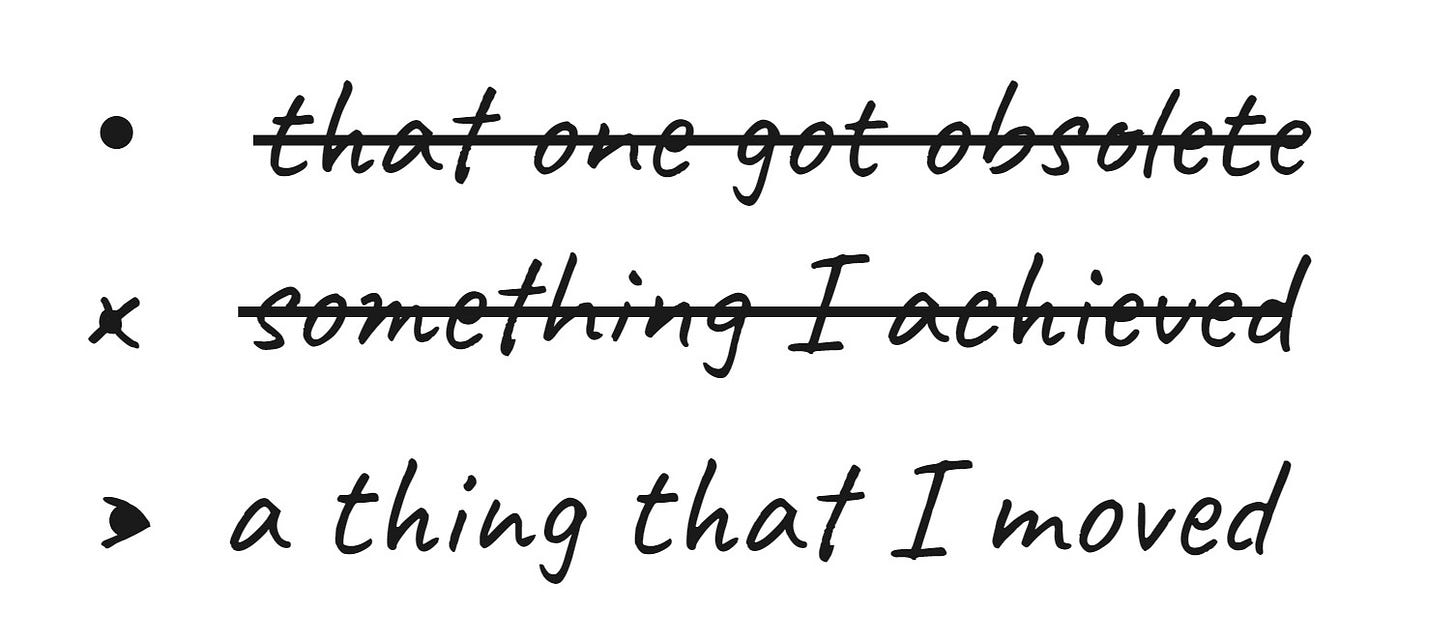
If something isn’t done within that week that can have two reasons:
- it got obsolete
- it needs to be moved to the next weekly log
In case of a chunk being obsolete you just cross the whole thing. That is it. Maximise the work NOT done!
In case you want to move a thing forward, you mark the bullet dot with a “half x” like that > and add the chunk/task to the weekly log of the next week (or month). Done!
Basics of reflection
Using the daily log as a means of reflection you also need a signifier for gratitude or appreciation. In my daily log I use a small heart to prefix these entries.
With that you’re all set up to use your journal for reflection purposes.
Use daily logging throughout the day to log all the remarkable things as you experience them wherever you are. Especially at work, your journal is like a traditional notebook but with a more helpful structure.
Sit for a quiet couple of minutes at the end of your day and reflect. Consider adding appreciation and gratitude entries, and anything else that occurs to you as you decompress your day.
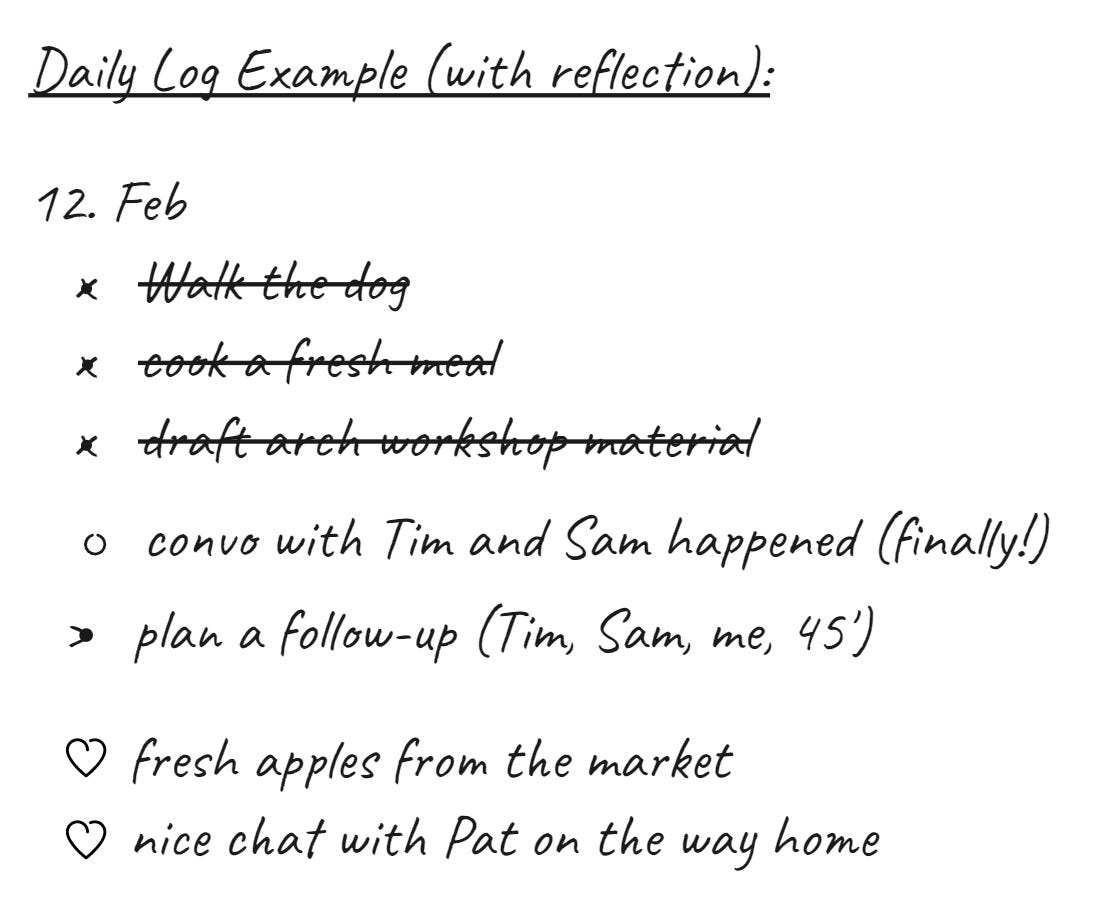
The other main purpose for folks using Business Journaling is organising themselves better.
Basics of better organisation
For that I recommend including a monthly log and a weekly log into your new journal.
Monthly log
The monthly log works like a backlog of all the things you want to or need to accomplish.
You store all the ‘things that shall happen in month X’ in the log of the current month.
The rule from the daily log stays valid: one “thing” prefixed with a bullet on one line. Write down just enough so that YOU can recall what one entry stands for.
No need to aim for perfection!
I recommend using a full free page for the monthly log out of plenty of my clients’ experiences.
There might be stuff upcoming especially early in the current month that you still want to “store” in your monthly log.
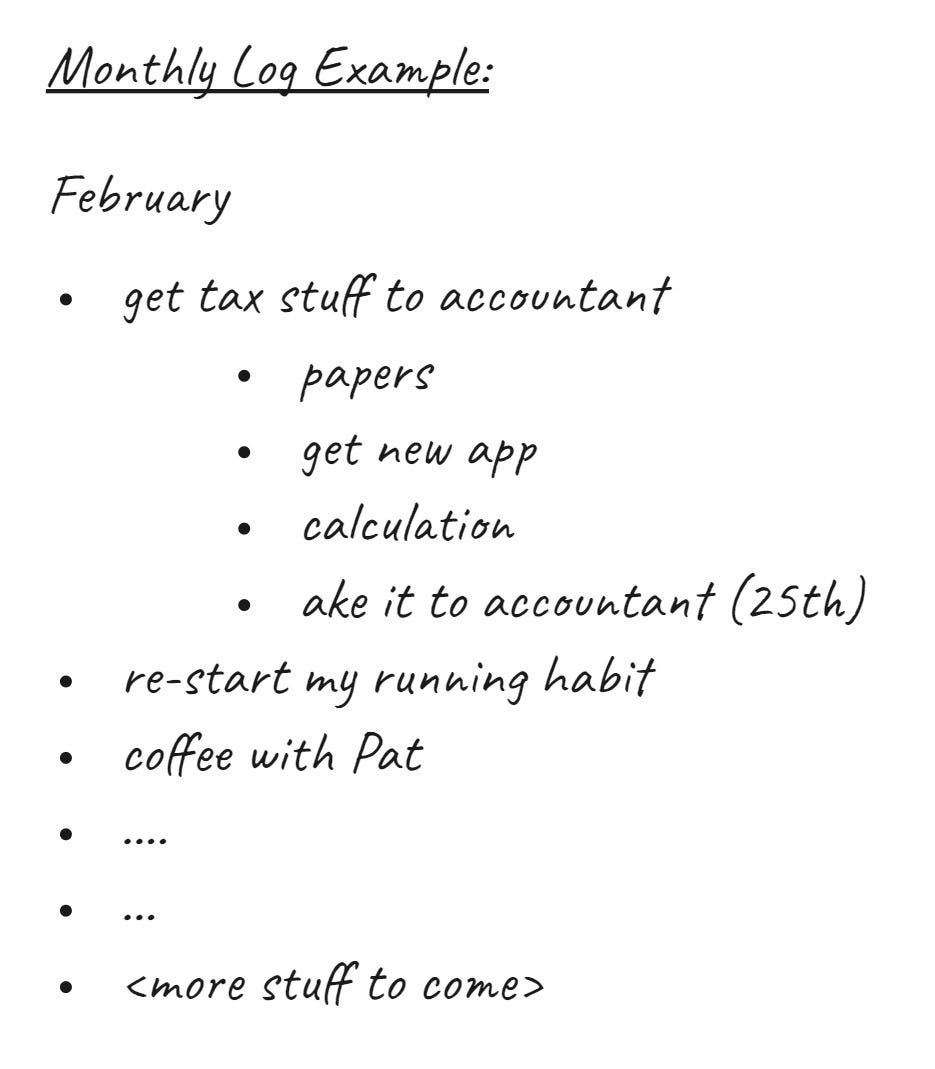
Weekly Log
When a new week starts, you pull all those “bullet points” into the weekly log.
The weekly log is all that you want (or need) to tackle this upcoming week.
Write the current week’s number on a free piece of a page to start a weekly log.
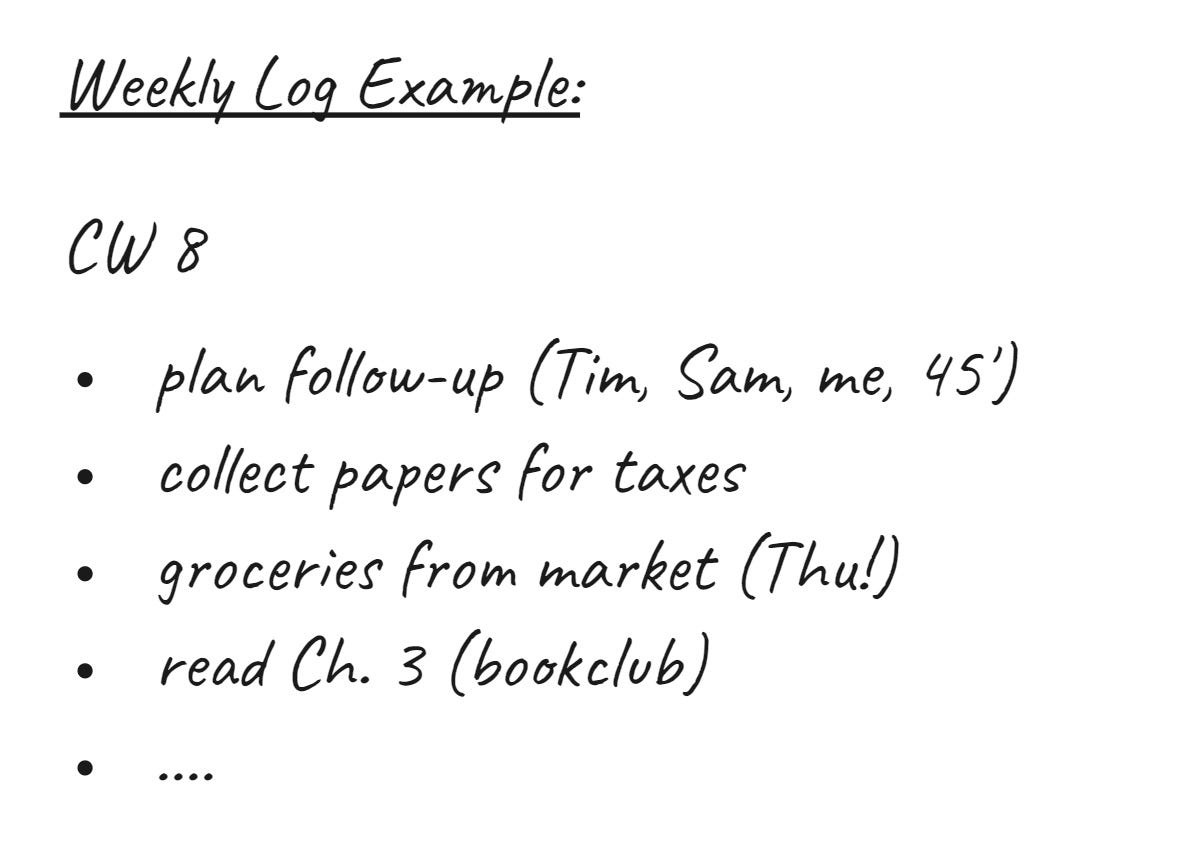
Oh, what an effort!?
You might now ask: isn’t it tedious to handwrite todos, tasks, events, chunks (that’s what I like to call them best) from week to week?
Yes, it can feel like extra effort!
The beautiful parts of this lightweight planning process is that it helps you to:
- Organise yourself better with small, achievable chunks
- Focus yourself on things that are important to you
- Let go of the rest
Yes, Business Journaling intentionally slows down a bit.
The reward will be:
- a clearer view on the essential parts,
- more free headspace
- and a “support system” tailored to YOUR needs.
Caveat: yes, this will not happen instantly! It will come once you’re giving yourself time and space to develop that new habit.
Your new habit and how to adapt when things get hard (they will!) will be part of the next piece.
( This article first appeared on RespectAndAdapt.rocks and it’s part of my Substack Newsletter on Business Journaling. )
